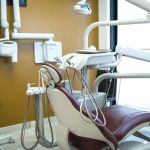How Much Does an NHS Dentist Earn? Insights on Salary and Career Progression
Becoming an NHS dentist is a rewarding career, both in terms of the work you do and the potential salary you can earn. Over the years, I’ve had several conversations with fellow dentists, both within the NHS and private practice, about their earnings, and it’s clear that the salary can vary depending on experience, location, and role. In this article, I’ll break down the salary expectations for NHS dentists, including the factors that influence pay and the career progression that can affect your earnings in this field.
Understanding NHS Dentist Salaries
First, let’s look at the basic salary of an NHS dentist. The National Health Service (NHS) in the UK operates under a pay scale that is set for salaried dentists. These salaries can vary significantly based on experience, role, and responsibilities. When I first started working as an NHS dentist, I was eager to understand what to expect in terms of income and how I could increase my earnings as I progressed in my career.
1. Initial Salaries for Newly Qualified NHS Dentists
If you’re a newly qualified dentist working in the NHS, your starting salary is likely to be at the bottom of the pay scale. As of now, the basic starting salary for a dentist in the NHS is typically around £31,000 to £35,000 per year. This salary reflects the pay scale for foundation dentists who are in their first year after completing their dental degree. It’s important to note that this salary is for dentists working in salaried positions within the NHS, not those in private practice.
During my early years as an NHS dentist, I was on a similar salary and found that it was enough to cover basic living expenses. However, as I gained experience, I was able to move up the pay scale and access higher earnings. While the initial salary may seem modest, it’s important to remember that NHS dentistry offers the potential for progression as you continue to develop your skills and take on more responsibility.
2. Mid-Level Salaries: Associate Dentists
After completing the foundation year, many NHS dentists progress into associate roles, where they work as self-employed contractors within NHS practices. Associate dentists are paid based on the number of patients they see and the services they provide. Typically, an associate dentist will earn between £50,000 and £80,000 per year, though this figure can vary based on the practice and the amount of work undertaken.
From my experience, associate positions offer a bit more flexibility in terms of the number of hours worked, but the income is less predictable. However, there are opportunities to increase earnings by taking on additional responsibilities or by working in more rural areas where there may be fewer dentists available, and thus a higher demand for services. I also found that some practices offered bonuses or incentives based on the number of patients seen or services provided.
3. Senior Positions and Specialist Dentists
As with any profession, experience plays a significant role in the salary you can expect to earn as an NHS dentist. After several years of practice, some dentists may choose to pursue specializations in areas such as orthodontics, periodontics, or oral surgery. Specialist NHS dentists earn significantly higher salaries, often ranging from £70,000 to £110,000 or more, depending on their role and the level of expertise required. These roles typically require further training and qualifications, but they come with increased responsibility and, of course, higher earning potential.
In my case, after gaining several years of experience, I decided to pursue a specialism in cosmetic dentistry. This was a key turning point in my career, and it allowed me to command a higher salary and take on more challenging and rewarding cases. Becoming a specialist can be a fantastic way to increase your earning potential, but it also requires a significant investment of time and effort.
4. Salaried Dentists in Public Health Roles
Some NHS dentists choose to work in salaried positions within public health roles, such as community dentistry or hospital dentistry. These roles can offer competitive salaries, with some positions offering salaries between £45,000 and £75,000 per year, depending on the location and the specific responsibilities. Public health roles can provide a more structured work schedule and may also include additional benefits, such as pensions and healthcare, which can be appealing for those who prefer a more predictable work-life balance.
I worked in a public health role for a few years early in my career, and I found it to be very fulfilling. Not only did it offer a decent salary, but I also had the opportunity to make a real impact in underserved communities, providing care to those who may not have access to private dental services.
5. Bonuses, Incentives, and Other Benefits
In addition to the base salary, many NHS dentists also have the potential to earn bonuses or additional incentives based on performance. For instance, NHS dentists who work in areas with high demand may receive a recruitment bonus, or they may earn extra money by taking on additional patients. Some NHS dental practices offer profit-sharing schemes, which allow dentists to earn a percentage of the practice’s profits. In my experience, bonuses can provide a significant boost to overall earnings, particularly if you’re working in a high-volume practice or in an area where there’s a shortage of dental professionals.
In addition to bonuses, NHS dentists also receive other benefits, including pension contributions, paid holidays, and sick leave. These benefits can add a lot of value to the overall compensation package, making NHS dentistry a stable and attractive career choice for many professionals.
How Location Affects NHS Dentist Salaries
It’s important to note that the salary of an NHS dentist can vary depending on the location of the practice. In areas with a higher cost of living, such as London, NHS dentists typically receive a higher salary to reflect the increased expenses. For example, a dentist working in London might expect a salary that’s 10-20% higher than a dentist working in a rural area. However, the cost of living in London is also higher, so it’s important to consider both salary and living expenses when evaluating job offers.
When I was considering different job opportunities, location played a key role in my decision-making process. While I loved the idea of working in a bustling city, I eventually decided that I preferred a slower pace of life in a smaller town. The lower cost of living made it easier for me to enjoy a higher standard of living, even if the salary was a bit lower compared to London.
Final Thoughts: The Earning Potential of an NHS Dentist
Becoming an NHS dentist can be a financially rewarding career, especially if you’re willing to work hard and take on additional responsibilities or specializations. While the initial salary may seem modest, there are plenty of opportunities to increase your earnings through experience, specialization, and location. The NHS offers a stable career path with a clear structure for career progression, along with additional benefits like pension contributions and paid leave.
If you’re considering a career in dentistry, the NHS can provide an excellent platform for both personal and professional growth. With the right combination of skills, experience, and dedication, NHS dentists have the potential to earn a comfortable living while making a meaningful difference in the lives of their patients.







 Elmwood Park Cosmetic Dentistry5.0 (1 review)
Elmwood Park Cosmetic Dentistry5.0 (1 review) Westborough Family Dental5.0 (71 review)
Westborough Family Dental5.0 (71 review) SmileLine Dental: Dr. Geeta Choudhary, DDS4.0 (87 review)
SmileLine Dental: Dr. Geeta Choudhary, DDS4.0 (87 review) Newtown Dentistry for Kids4.0 (544 review)
Newtown Dentistry for Kids4.0 (544 review) Sahara Dental Center part Brident Dental & Orthodontics4.0 (788 review)
Sahara Dental Center part Brident Dental & Orthodontics4.0 (788 review) Two Front Teeth Family Dentistry - Dr. Elise Pham5.0 (41 review)
Two Front Teeth Family Dentistry - Dr. Elise Pham5.0 (41 review) The Importance of Oral Health Education During Pregnancy for a Healthy Pregnancy
The Importance of Oral Health Education During Pregnancy for a Healthy Pregnancy Best Tips for Brushing Your Teeth Properly for Healthy Gums: Essential Techniques for Oral Health
Best Tips for Brushing Your Teeth Properly for Healthy Gums: Essential Techniques for Oral Health Why Skipping Dental Checkups Can Lead to Bigger Oral Health Problems
Why Skipping Dental Checkups Can Lead to Bigger Oral Health Problems Advantages of Porcelain Dental Restorations
Advantages of Porcelain Dental Restorations How Can Diabetes Cause Tooth and Gum Problems? Preventing and Managing Oral Health Issues
How Can Diabetes Cause Tooth and Gum Problems? Preventing and Managing Oral Health Issues Healthy Habits for Promoting Good Oral Health and Hygiene: Tips for a Healthy Smile
Healthy Habits for Promoting Good Oral Health and Hygiene: Tips for a Healthy Smile